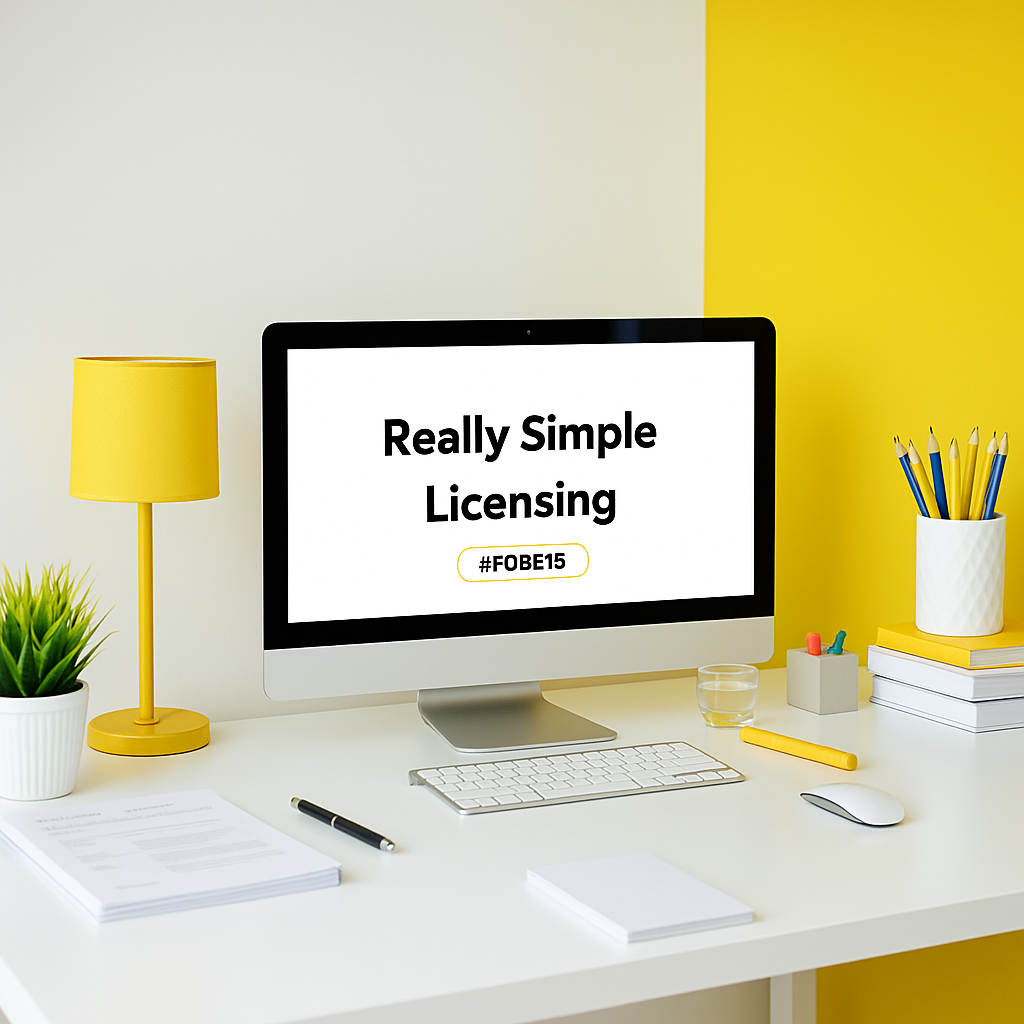Understanding Really Simple Licensing: Simplifying Access and Control
Really Simple Licensing introduces a straightforward and transparent approach to software and digital content licensing. It reduces complexity for businesses and developers by eliminating convoluted legal language and cumbersome processes. This clarity allows companies to manage rights and permissions more efficiently, accelerating deployment, improving compliance, and enhancing user relationships through clear terms.

The model emphasizes easy implementation and flexibility to suit various business needs. Simplified licensing reduces the time and resources spent on management while minimizing risks of misuse or infringement. Clear guidelines benefit developers by defining permitted uses and help businesses avoid disputes by setting upfront expectations.
The Impact of Really Simple Licensing
By removing unnecessary complexity, Really Simple Licensing focuses on transparency and concise terms that both businesses and developers can easily understand. This clarity reduces friction in licensing, builds trust between providers and customers, and streamlines negotiations and enforcement.
Simplified terms lead to faster product deployment and smoother integration into workflows. Developers gain a clear framework that reduces accidental violations and supports compliance. Businesses benefit from fewer legal disputes and more efficient license management.
Effective implementation balances simplicity with adaptability, offering tiered or modular licenses that scale with customer needs while maintaining clarity. Ongoing communication between licensors and licensees allows adjustments as requirements evolve, keeping licensing practical and relevant.
Beyond operational gains, simpler licensing enhances customer confidence and loyalty by making rights transparent. It lowers barriers to new markets and partnerships, supporting positive, lasting relationships between companies and users.
Really Simple Licensing for Digital Content Control
Really Simple Licensing offers a new method for managing digital content rights, especially regarding AI-driven data use. By embedding licensing terms into website content and robots.txt files, publishers can control how AI companies access and monetize their data. This includes specifying fees for different usage types, such as subscriptions or pay-per-crawl, while allowing non-training bots like search engines unrestricted access. This approach addresses concerns about unauthorized scraping and AI training on proprietary content.
The system’s success depends on cooperation between publishers and AI firms, as enforcement relies on voluntary compliance. The RSL Collective, led by industry figures Eckart Walther and Doug Leeds, envisions a collective licensing model similar to music rights organizations, simplifying negotiations and standardizing terms for all parties.
Technological tools from companies like Fastly support monitoring and controlling bot access based on licensing compliance, providing publishers with enforcement capabilities previously unavailable. While some major media companies negotiate directly with AI firms, RSL offers a more accessible framework for smaller publishers and independent creators, leveling the digital content playing field.
Adopting Really Simple Licensing promotes transparency and trust with audiences and partners, encouraging ethical data practices and fair value distribution. Although enforcement and industry cooperation remain challenges, RSL represents a promising step toward balancing innovation with respect for content ownership.
Frequently Asked Questions About Really Simple Licensing
How does Really Simple Licensing differ from traditional models?
RSL removes legal complexity, making licensing terms clear and easy to understand. This reduces accidental misuse and simplifies obtaining and managing licenses, saving time and resources.
How does RSL maintain flexibility while staying simple?
It offers tiered or modular licensing options that adapt to different business needs without overwhelming users. This scalability keeps terms relevant and practical, supported by ongoing dialogue between licensors and licensees.
What role does RSL play in digital content and AI?
RSL enables content creators to embed clear usage rules into digital assets, controlling AI access and use. This supports fair compensation and protects against unauthorized scraping or training. Emerging tools help monitor compliance and assist publishers in rights management.
What broader impact does RSL have?
Beyond operational benefits, RSL builds trust by making licensing accessible, improving relationships between content owners and users. It lowers barriers to partnerships and markets and encourages ethical data use, contributing to a fairer digital ecosystem.
Simplicity for Better Licensing Outcomes
Really Simple Licensing removes unnecessary complexity from agreements, benefiting creators and users through clarity, flexibility, and collaboration. It streamlines rights management for software and digital content, facilitating fair use enforcement and asset protection. This approach saves time and resources, builds trust, promotes ethical practices, and opens opportunities for partnerships and innovation. As technology and business needs evolve, simpler licensing frameworks help ensure rights are respected and value is shared more equitably across industries.
For more details, read the original article on Search Engine Land. As noted by the article’s author, “Really Simple Licensing represents a promising step toward balancing innovation with respect for content ownership.”













.png)

